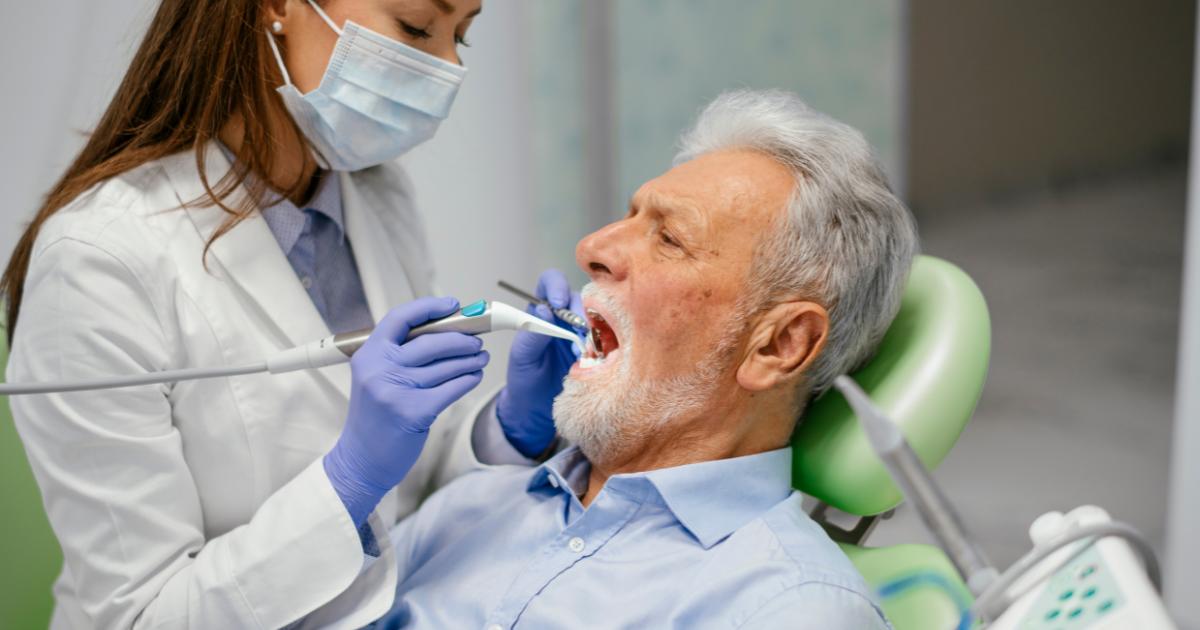When was the last time you sat in the dentist’s chair? For many, visiting the dentist feels like a chore, but it’s a crucial part of maintaining a healthy smile. While the typical advice is to go every six months, the real answer isn’t so simple—it depends on your oral health needs, lifestyle, and even your genetics. If you’ve been wondering how often you should visit the dentist, keep reading to find out what experts recommend and why skipping those appointments might cost you more than just a bright smile.

1. The General Rule: Twice a Year
Most dentists recommend visiting the dental office twice a year for regular cleanings and checkups. This six-month schedule allows dentists to catch problems like cavities, gum disease, or plaque buildup before they become serious. Routine visits also give you the opportunity to discuss any changes in your oral health, from tooth sensitivity to bad breath. Even if your teeth feel fine, these biannual visits are key to preventing hidden issues that could lead to more expensive treatments down the line.
Advertisement
2. High-Risk Patients May Need More Visits
If you fall into the high-risk category, you might need to see the dentist more frequently. High-risk patients include those with a history of gum disease, smokers, diabetics, or individuals prone to cavities. For these groups, visiting the dentist every three to four months ensures that oral health problems are addressed quickly. Dentists can tailor treatment plans to your specific needs, reducing the likelihood of long-term complications. Skipping these extra visits can exacerbate existing conditions, turning minor issues into major dental woes.
3. Children and Teens: Special Attention for Growing Smiles
Kids and teens require frequent dental checkups to support their developing teeth and gums. Pediatric dentists often recommend visits every six months—or even more often if orthodontic treatment is involved. Regular cleanings help prevent cavities caused by sugary diets, while checkups ensure that teeth are growing in correctly. For teens with braces, more frequent appointments are often necessary to monitor progress and maintain oral hygiene around orthodontic hardware. Establishing a routine early helps set the foundation for lifelong dental health.
4. Pregnancy and Oral Health: Why Extra Care Matters
During pregnancy, fluctuating hormones can lead to conditions like pregnancy gingivitis or increased sensitivity. These changes make it especially important to visit the dentist regularly. Dentists can provide treatments to alleviate discomfort and monitor your oral health to prevent more serious conditions. Pregnancy is also linked to an increased risk of periodontal disease, which can have implications for both maternal and baby health. Scheduling dental visits during pregnancy ensures that you’re protecting both your smile and your overall well-being.
5. Signs You Should Book an Immediate Visit
Sometimes, waiting for your next scheduled appointment isn’t an option. Persistent pain, bleeding gums, or a broken tooth all require immediate attention. Ignoring these symptoms could lead to more severe issues like infections or tooth loss. Your dentist can diagnose and treat these problems promptly, saving you from potential complications. If you’re experiencing discomfort, don’t wait—book an appointment as soon as possible to protect your oral and overall health.
6. Preventive Care Can Save You Money
Regular dental visits might feel like an expense, but they’re an investment in your long-term oral health. Preventive care, including cleanings and early detection of issues, often costs much less than restorative treatments like crowns or root canals. Addressing problems early not only saves your teeth but also reduces the financial burden of extensive dental work. Think of those appointments as an insurance policy for your smile—consistent care now means fewer costly surprises later.
7. Dental Visits for Seniors: Maintaining Health in Later Years
As we age, dental needs evolve, making regular checkups even more important. Seniors are more prone to issues like dry mouth, receding gums, and tooth loss, which can impact overall health. Dentists can help manage these challenges by providing specialized care and advice tailored to aging teeth and gums. Regular visits also play a critical role in detecting oral cancer, which becomes more common with age. For seniors, maintaining a consistent schedule of dental appointments can enhance both quality of life and overall health.

8. Tailoring Your Schedule to Your Needs
Ultimately, how often you should visit the dentist depends on your unique situation. Factors like your oral hygiene habits, diet, and family history play a significant role in determining the right frequency. Regular communication with your dentist can help you create a personalized care plan that fits your lifestyle. Whether it’s twice a year or every few months, the key is consistency—keeping up with your visits ensures that small problems don’t turn into big headaches.
Advertisement
Final Thoughts
Visiting the dentist isn’t just about maintaining a bright smile; it’s an essential part of your overall health. While the general rule is to go every six months, your individual needs might require more frequent care. High-risk patients, children, pregnant women, and seniors all have unique reasons to prioritize regular dental checkups. By staying proactive and scheduling appointments tailored to your oral health, you can avoid costly treatments, protect your teeth, and enjoy a lifetime of healthy smiles.
Remember, your smile is an investment—take the time to care for it with regular visits to your dentist. You might just save more than your teeth—you could be safeguarding your health and your wallet too.
References
- American Dental Association. “How Often Should You See the Dentist?” Accessed December 13, 2024. https://www.ada.org.
- Mayo Clinic. “Oral Health: A Window to Your Overall Health.” Accessed December 13, 2024. https://www.mayoclinic.org.
- Centers for Disease Control and Prevention. “Oral Health Conditions.” Accessed December 13, 2024. https://www.cdc.gov.
- WebMD. “Why Regular Dental Visits Are Important.” Accessed December 13, 2024. https://www.webmd.com.


